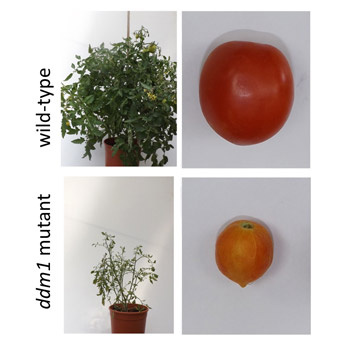The Saclay Plant Sciences network (SPS) gathers around 55 research teams specialized in plant sciences belonging to 5 institutes in the Saclay area (south west of Paris) and represents about 700 people. The current research activities of the SPS partners concern the genetic, molecular and cellular mechanisms that control plant physiology and development, as well as their interactions with fluctuating biotic or abiotic environments. These studies extend from the gene to the entire plant, and use the concepts and tools of biochemistry, biophysics, imaging, molecular biology, genetics, cell biology, modelling and bioinformatics. Data analysis and research in bioinformatics and bio-statistics is currently carried out by 25 permanent bio-informaticians and statisticians in the 5 institutes.
SPS is recruiting one bioinformatician “Ingénieur.e de Recherche” to participate and manage the SPS-Bioinformatics Analysis and Research Support (SPS-BARS), a bioinformatics service composed of 3 bioinformaticians (including the IR) that provides support activities to the SPS research community and takes over the increasing requests for the analysis of biological data. The recruited engineer will be allocated for a large part of her/his time to Research Units to work on specific projects. These projects are validated by the SPS bioinformatics committee which is composed of bioinformaticians and biologists from SPS. Teaching missions (academic and/or professional education) may also be requested.
Tasks and responsibilities
The main mission is to provide support to Research Units for the bioinformatics and/or biostatistics analysis of their data. This support includes:
- advising and guiding the implementation of methods and tools for the analysis of biological data,
- maintaining an active bibliographic survey and evaluating published tools and methods,
- developing, when necessary, new analytical methods and tools,
- analyzing data in collaboration with the Units,
- ensuring the transfer of tools and expertise to the Units,
- delivering training courses in bioinformatics and biostatistics,
- maintaining the methods and tools developed by the Units, and ensuring their integration into core software solutions like Snakemake or Nextflow.
The additional mission will be the management of the SPS-BARS through
- the daily interactions and supervision of the other engineers of the service,
- the organization of the SPS bioinformatics calls and training sessions,
- the interactions with the SPS bioinformatics committee.
Job profile
Several needs have been identified and some of the following skills are expected:
- Analysis of HTS data (variant calling, genome assembly, differential expression, epigenomics...),
- Analysis of metabolomic data,
- Analysis of proteomic data,
- Analysis of imaging data,
- Data integration
Duration:
Funds are available for 18 months.
Salary:
The engineer will be recruited by INRAE. Depending on the previous experience, the gross salary will range from 2300€ to 2900€ for the IR position (net salary between 1900€ and 2400€).
Candidate profile and conditions
The candidate is expected to have a PhD or an engineer degree in bioinformatics, statistics, applied mathematics or a related field. Teaching experience in bioinformatics/biostatistics will be appreciated.
SPS is committed to foster gender equality, so female candidates are encouraged to apply.
To apply
Applications (cover letter, detailed CV and 2 reference letters) should be sent to etienne.delannoy[at]inrae.fr and nicolas.bouche[at]inrae.fr.
